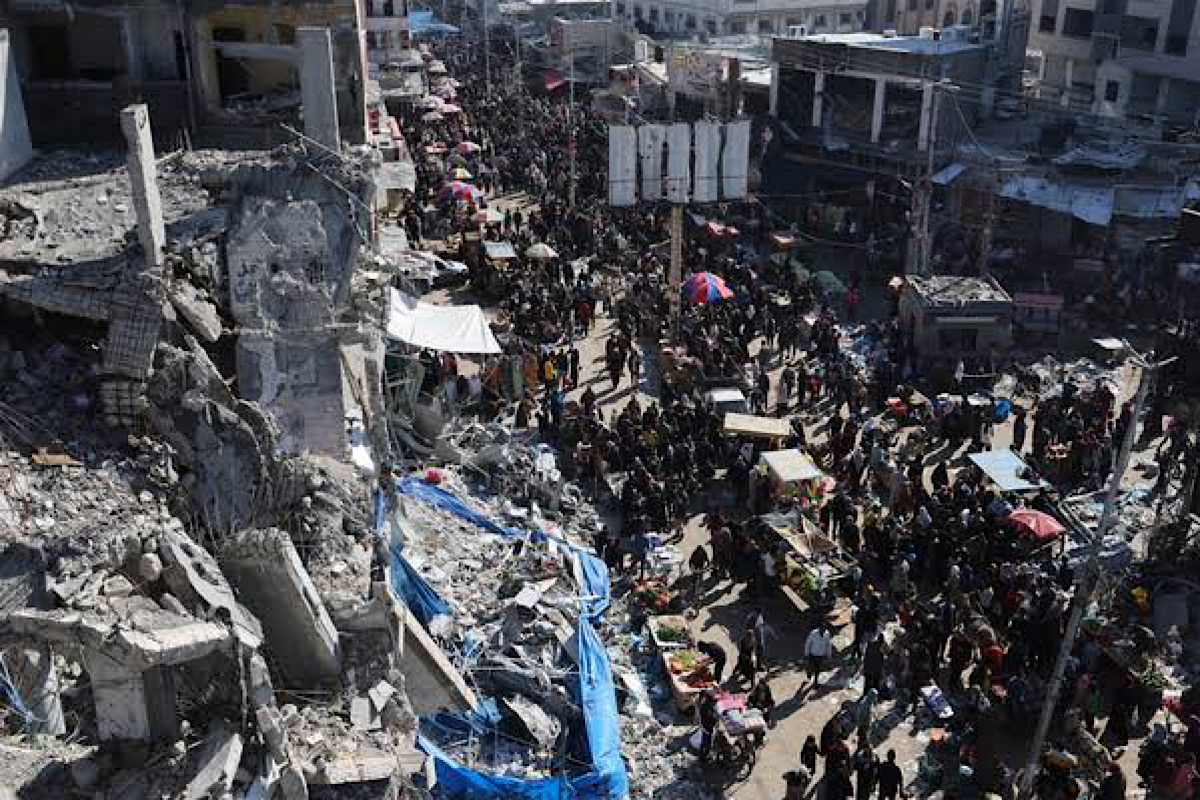For years, public dissent against Hamas in Gaza has been subdued, often silenced before it could gain momentum. However, recent protests in Beit Lahia signal a significant shift. Hundreds of Palestinians, weary of war and destruction, took to the streets demanding Hamas step down. This rare demonstration of defiance reveals the growing frustration of ordinary Gazans, trapped between a relentless Israeli military campaign and a leadership that refuses to change course.
The war has only deepened the suffering of Gaza’s 2.1 million people, with tens of thousands killed, homes reduced to rubble, and critical infrastructure decimated. Despite this, Hamas remains entrenched, insisting that the struggle must continue. But for many civilians, the cost of this unyielding stance has become unbearable. Protesters made their message clear: they refuse to be mere numbers in a war that has robbed them of homes, livelihoods, and loved ones. Hamas’s response was swift and brutal. Armed militants forcefully dispersed the crowd, assaulting protesters and dismissing them as traitors.
Advertisement
This reaction is not surprising. Since taking control of Gaza in 2007, Hamas has tolerated little dissent, maintaining power through a mix of ideological control and force. Even in the face of widespread devastation, its leadership remains unwilling to acknowledge public grievances. Instead, they accuse demonstrators of pushing “suspicious political agendas,” as if the suffering were not reason enough to demand change. For years, Hamas justified its rule by portraying itself as the only force capable of resisting Israel. But as suffering deepens, many Gazans now wonder if that resistance is worth the cost.
Yet, this unrest reflects a deeper issue. But as the war drags on, Hamas’ narrative of being the only force to resist Israel is losing appeal. The people of Gaza are not only suffering from Israeli airstrikes but also from the failures of their own rulers. Basic necessities ~ food, water, medicine ~ are scarce. The economy is in ruins. And while Hamas leaders call for sacrifice, it is civilians who pay the price. What makes these protests particularly significant is that they are happening despite the risks. Speaking out against Hamas can lead to imprisonment, torture, or worse. Yet, the desperation is now so great that people are willing to take the chance.
The question is whether this dissent will grow into something larger or be crushed before it can challenge Hamas’s rule. While it is difficult to gauge the true extent of shifting public sentiment, one thing is clear: Hamas is facing a crisis of legitimacy. As the war continues, more Gazans may begin to questi on whether their rulers truly represent their interests. If Hamas continues to ignore this discontent, it risks alienating the very people it claims to protect. The voices rising from the rubble are the most truthful ~ dismissing them will only deepen the divide between Hamas and those it governs.
















